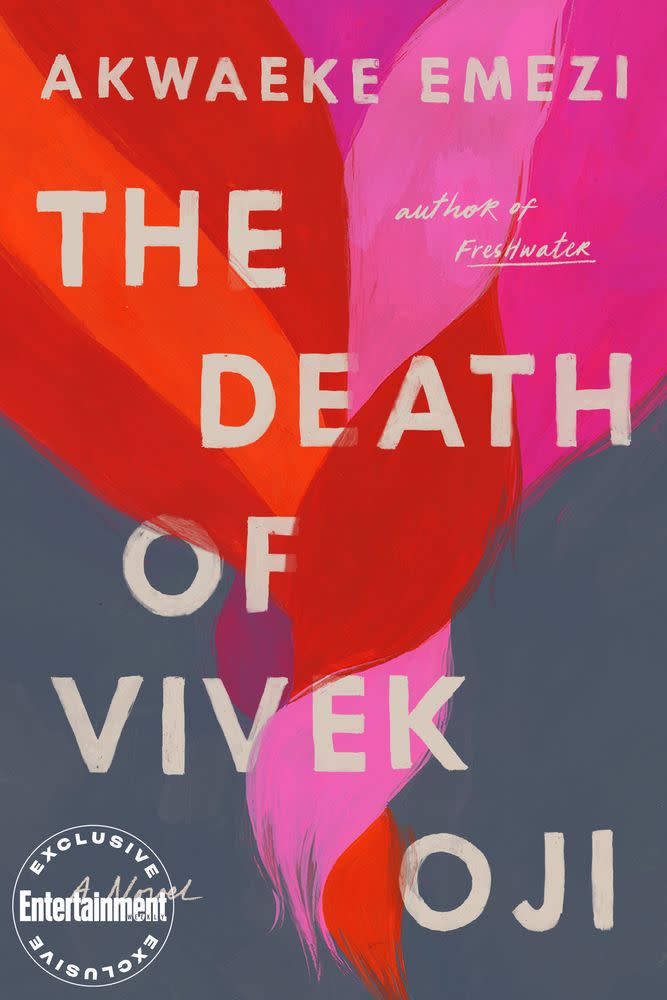Akwaeke Emezi previews new Nigeria-set novel The Death of Vivek Oji
For fans of one of last year’s most exciting literary debuts, we’ve got some good news: Akwaeke Emezi is returning with a sophomore novel.
The award-winning Freshwater author will next publish The Death of Vivek Oji, a Nigeria-set mystery that finds Emezi revisiting themes of family, identity, and multiple consciousnesses.
Here’s the official synopsis: “One afternoon, in a town in southeastern Nigeria, a mother opens her front door to discover her son’s body, wrapped in colorful fabric, at her feet. What follows is the tumultuous, heart-wrenching story of one family’s struggle to understand a child whose spirit is both gentle and mysterious. Raised by a distant father and an understanding but overprotective mother, Vivek suffers disorienting blackouts, moments of disconnection between self and surroundings. As adolescence gives way to adulthood, Vivek finds solace in friendships with the warm, boisterous daughters of the Nigerwives, foreign-born women married to Nigerian men. But Vivek’s closest bond is with Osita, the worldly, high-spirited cousin whose teasing confidence masks a guarded private life. As their relationship deepens — and Osita struggles to understand Vivek’s escalating crisis — the mystery gives way to a heart-stopping act of violence in a moment of exhilarating freedom.”
EW has an exclusive first look at the novel in the form of a cover reveal, which you can see below. We also caught up with Emezi in an interview touching on the breakout success of Freshwater, the new territory explored in this next book, and the experience of writing a YA novel. Read on below. The Death of Vivek Oji publishes Aug. 4, 2020, and is available for pre-order.

ENTERTAINMENT WEEKLY: Where did your idea for this first come from? How did it develop?
AKWAEKE EMEZI: After writing Freshwater, I needed to challenge myself with form so I wouldn’t get bored. I had read Gabriel Garcia Marquez’s Chronicle of a Death Foretold and I was hooked by the idea of killing your protagonist at the start of a book and still having an entire story afterward. I also really wanted to set a book in the Nigeria of my childhood, in the Southeast during the late ’90s and within the Nigerwives community I grew up in — foreign women married to Nigerian men — because quite frankly, it makes for a damn good story.
You unfold a mystery here — any literary inspirations for how to craft one for a central plot?
Toni Morrison’s novel Love. There was so much that was opaque in that book until you reached the end of it, and I loved that about it. It’s my favorite Morrison novel. While writing The Death of Vivek Oji, I thought of it as having to keep a secret from the reader until the end.
What was your process writing this novel? How did it differ from Freshwater?
I wrote Freshwater in eight months, revising it as I went along, but with The Death of Vivek Oji, I wouldn’t allow myself to read back anything I’d written. So when I sat down, I had to keep moving forward with the story without revisiting what I’d written the day before. I had structured the process so I’d write five days out of the week, with a goal of 2,500 words a day, written in 500-word increments. It took me four months to finish a rough draft, then I let myself read over all of it, and it took me two months to revise it into a first draft. I also got stuck halfway and had to go write the end of the book before coming back to sort out the middle.
Freshwater was a critical phenomenon that took your career to the next level, including landing with a new publisher. How do you reflect on that experience now? Was it overwhelming?
Having my first book out in the world was definitely overwhelming. Grove was fantastic in supporting me and the work, and I learned that having a solid team while navigating this new life is critical. I wasn’t expecting that many people to love Freshwater — I think I underestimated readers and I am so glad I was proven wrong. Seeing relationships build between readers and my work is immensely fulfilling and I continue to be grateful for everyone who engages with my stories.
You’re also coming off your first YA novel. How was that experience? Did it change you as a writer at all?
Writing for a younger audience felt like I had a chance to participate in shaping a new world, because I was writing specifically for a different generation. It felt like both an honor and a great responsibility, and I think it sharpened me as a writer, to shift into another genre and still deliver something that I was deeply proud of writing.
Anything readers of yours will be surprised by in this new novel? Any big risk you took here, something you hadn’t quite tried before?
I hope all my books have something surprising in them — they all contain risk because I try to do things I haven’t done before with each book. That’s what keeps them interesting for me to write. I don’t think I can predict readers— seeing how they engage with the stories is always a learning experience for me. I like to say I live vicariously through them because I never really get to experience my own work as a reader, so I’m very excited to see how people respond to this new novel, which themes resonate, [and] which themes outrage.
**
Related content:

